Ever wondered what Elon Musk and Oprah have in common (other than pretty cool names)? What about Warren Buffet, Howard Schultz, Ariana Huffington?
All great entrepreneurs have something in common, something that sets them apart from everyone else, something that helped them climb to the top of their game and stay there.
When you look up at your heroes it can be easy to get caught in the trap of thinking that they got to where they are in life without any turbulence.
Sure, some of them were born into money or influence, maybe some had an easier start than others or were just born lucky.
But being born with a headstart doesn’t automatically equal success. After all, business is not a sprint – it’s a marathon. And you can’t win a marathon if you don’t have the strength to push the pain barrier.
So, what is the number one trait that pushed these greats to the forefront of innovation? What’s the secret to success?
Some people say that these great entrepreneurs have unnaturally high IQs, or that every single one of them starts their workday at 4 am, or that they each were born with a unique ability to only sleep 2 hours a night and work around the clock.
The real answer?
The common trait that all successful people share:
They are all tough.
That’s right.
When we say tough, we don’t mean that they fight polar bears or eat glass for dinner, although who knows what goes on behind closed doors. Instead, we mean toughness in the mindset sense.
These entrepreneurs are unstoppable because they’re tough. And that’s why you need to be, too.
EXCLUSIVE FREE TRAINING: This New Free Masterclass Will Make You Unstoppable
What is Mental Toughness, And Why Do Entrepreneurs Need It?
Mental toughness goes by a lot of different names; grit, strong, focussed, dedicated, resilient – but they all mean the same thing. It means you have a psychological edge over other people.
As an entrepreneur, that psychological edge is what will set you apart from the entrepreneurs.
Angela Duckworth, a leading professor of psychology and a somewhat authority on the matter, has dedicated her life to understanding mental toughness and grit.
Speaking with Business Insider, Duckworth said: “what I do know is that talent doesn’t make you gritty…In fact, in our data, grit is usually unrelated or even inversely related to measures of talent.”
Her research began with a study of cadets at the U.S. Military Academy where she investigated whether grit was a factor in explaining why some
cadets who were supposedly talented failed during basic cadet training.
She developed what is now known as the “Grit Scale”, a test that helped to identify traits that might predict success. The cadets were assessed prior to training to establish where they sat on the grit scale.
This training, known as the Beast Barracks, is a 7-week hardcore program designed to test the cadets and weeds out the weak.
Duckworth and her colleague’s research suggested that talent alone not be a sufficient predictor of the likelihood of a West Point Cadet succeeding under the punishing physical and emotionally demanding conditions of Beast Barracks 17-hour training days. Those that remained had something more than just talent, they had grit.
What they found was that cadets that showed a “standard deviation higher in grit than their peers had 54% greater odds of making it through this initiation period without dropping out”.
“My research focuses on two traits that predict achievement: grit and self-control. Grit is the tendency to sustain interest in and effort toward very long-term goals” says Duckworth. “Self-control is the voluntary regulation of impulses in the presence of momentarily gratifying temptations. On average, individuals who are gritty are more self-controlled”.
A real-life example of this at play could be entrepreneurs who are early risers. Waking up at 4 am is a perfect example of “voluntary regulation of impulses in the presence of momentarily gratifying temptations”, in other words, it’s not a lot of fun at first. But this ability to self-regulate is a sign of how gritty or mentally tough you are.
An entrepreneur’s success is rooted in their ability to self-control and stay disciplined, and they need that underlying grittiness to keep the course.
Because when the going gets rough, and on the entrepreneur’s path you can bet your bottom dollar that it is going to get rough, mental toughness will be the key characteristic that lets you sink or swim.
Let’s have a look at some of the greatest entrepreneurs of our time, and pinpoint exact moments in their career and journey that showcase their ace card: their mental toughness.
READ MORE: How To Win The Day The Spartan Way
Oprah Winfrey
There’s a reason why we have a giant mural of Oprah in the Melbourne Foundr HQ office. As a USA Today journalist put it: “There is perhaps no better example of someone who turned adversity into strength, and failure into success than Oprah Winfrey.”
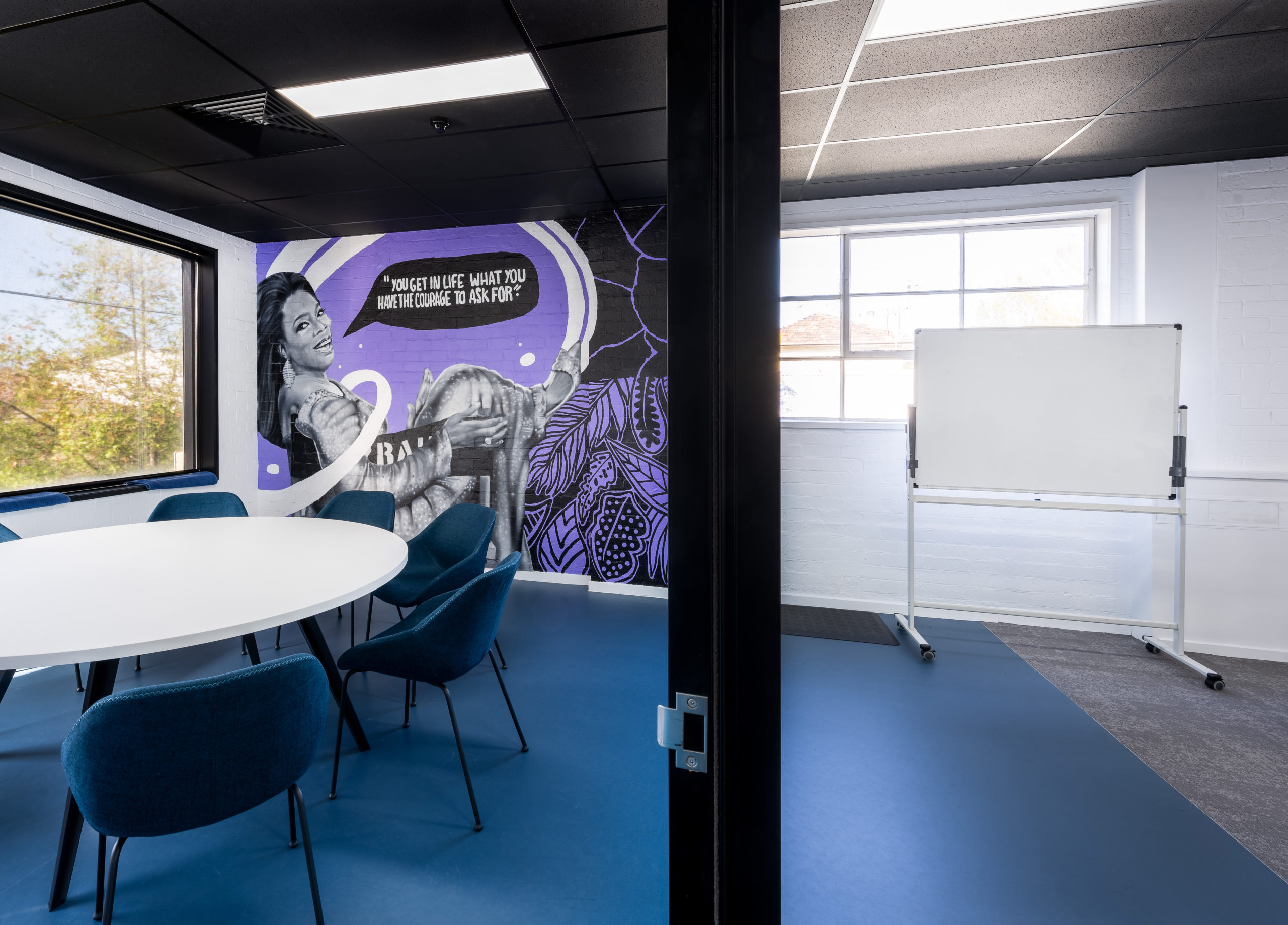
Battling through a difficult start in life including impoverished home life, sexual abuse, and teenage pregnancy, but ultimately Oprah hasn’t let anything hold her back.
Possibly her most formative time, the period in her life that she herself credits as the most transformative and challenging times of her life, was her first big break at age 20 working in Baltimore for WJZ alongside veteran anchorman Jerry Turner as co-anchor on the 6 pm news. The station wanted to appeal to a broader audience, and so they began an aggressive marketing campaign which ultimately set Oprah up for failure.
“I was on the back of buses. I was on billboards,” Winfrey says. “And what happened is that when I arrived, people were expecting this big something. The buildup was so strong. And I’m just a colored girl with a lot of hair sitting next to Jerry Turner, and everybody’s like, ‘Whaaaaaaaaattttt? That’s what an Oprah is? She’s not all that?’ I could not live up to the hype.”
On air, Oprah said she quickly realized that she didn’t have the skills to connect with the audience. To make matters worse, her co-star Turner who was the top dog in broadcasting was incredibly vocal about how unhappy he was working with her. Oprah has said in recent interviews that the first problem was that he didn’t want a co-anchor in the first place, especially not one who was “green behind the ears” like her.
The station’s ratings plummeted, her co-anchor Turner pulled some strings, and Oprah was dropped from the 6 pm news to the “morning cut-ins”, a role that was virtually invisible in the 1970s.
“I was removed from the 6 pm. news exactly April 1, 1977…as you know, when you’re humiliated that way, you never forget,” Winfrey says. “The general manager called me upstairs, and I thought it was an April Fool’s joke when they told me… they told me ‘We have bigger plans for you; we’re going to put you on the morning cut-ins.’
“I was devastated,” Winfrey says. “I knew it was a horrible demotion, and Jerry Turner was saying, ‘I didn’t know anything about it, babe,’ when, in fact, they had been planning for weeks to replace me [with Al Sanders].”
Most people facing this kind of humiliation and dejection would have given up, decided that this career wasn’t for them, and accepted that they just weren’t cut for it.
But Oprah’s has that grit, that all-important mental toughness. Instead of quitting, she stayed and decided to learn as much as she could. While she wasn’t comfortable doing television news, she discovered that her strength lay in hosting more personal interviews.
Her pivot from just a newsreader to a talk show host, something she found more authentic, is why we know Oprah today.
With an estimated $2.6 billion, Oprah still credits her time in Baltimore as the best and worst job she ever had. Her ability to see the opportunity for growth in a crisis is just one of the marks of her mental toughness. Rather than wallow in self-pity or allow the rejection to define her capability, she brushed herself off and kept going.
“My goal at that particular phase in my life was to learn as much as I could,” she says. “I looked at Baltimore as a learning opportunity, as a ‘teach me’ school for life. I learned the absolute most about myself there. It was my first time away from home starting out as my own true self—not with any family member—and learning how to negotiate in the corporate world. I look at those years as how they made me into the woman I am now.”
READ MORE: The Science-Backed Qualities of Good Leaders – And How To Apply Them To Your Business

Ariana Huffington
Everyone has heard about J.K Rowling facing 12 rejections and bankruptcy before she got Harry Potter published, but an even more impressive example of tough perseverance is none other than Ariana Huffington.
It’s hard to believe that the founder of The Huffington Post, author of 15+ books, and CEO of Thrive Global, and listed in Time Magazine‘s list of the world’s 100 most influential people, Huffington would have a hard time selling a book to publishers.
But back in 2019, Huffington wrote about how she was once rejected by 37 publishers.
Working as a journalist with a single book published, Huffington was desperately looking to secure a publishing contract while living in London.
“I wouldn’t call it despondent, but one of the low points in my life was when I was shopping my second book around. It ended up being rejected by, yes, 37 publishers. After the 25th rejection, I remember running out of money and walking, depressed, down St James Street in London, where I was living at the time, and seeing a Barclays Bank. I’m not sure why, but I walked in and asked to speak to the manager. And I asked him for a loan. Even though I didn’t have any assets, the banker—whose name was Ian Bell—gave it to me.”
Most people give up after one or two rejections, but even with a grand total of 25 rejections, Huffington put everything on the line (and more) and literally hedged her bets on future success by taking a loan.
This small loan from the bank was the little leverage she needed to keep going on her journey, and luckily her bets paid off (after even more rejections!).
“It wasn’t much, but it changed my life because it meant I could keep things together for another 12 rejections, and finally an acceptance!”
If that doesn’t take guts and self-belief, then what does. Instead of running from the fear, Huffington leaned into it by adding another level of pressure. If she didn’t keep going, it would be for nothing.
READ MORE: How To Be A Better Public Speaker
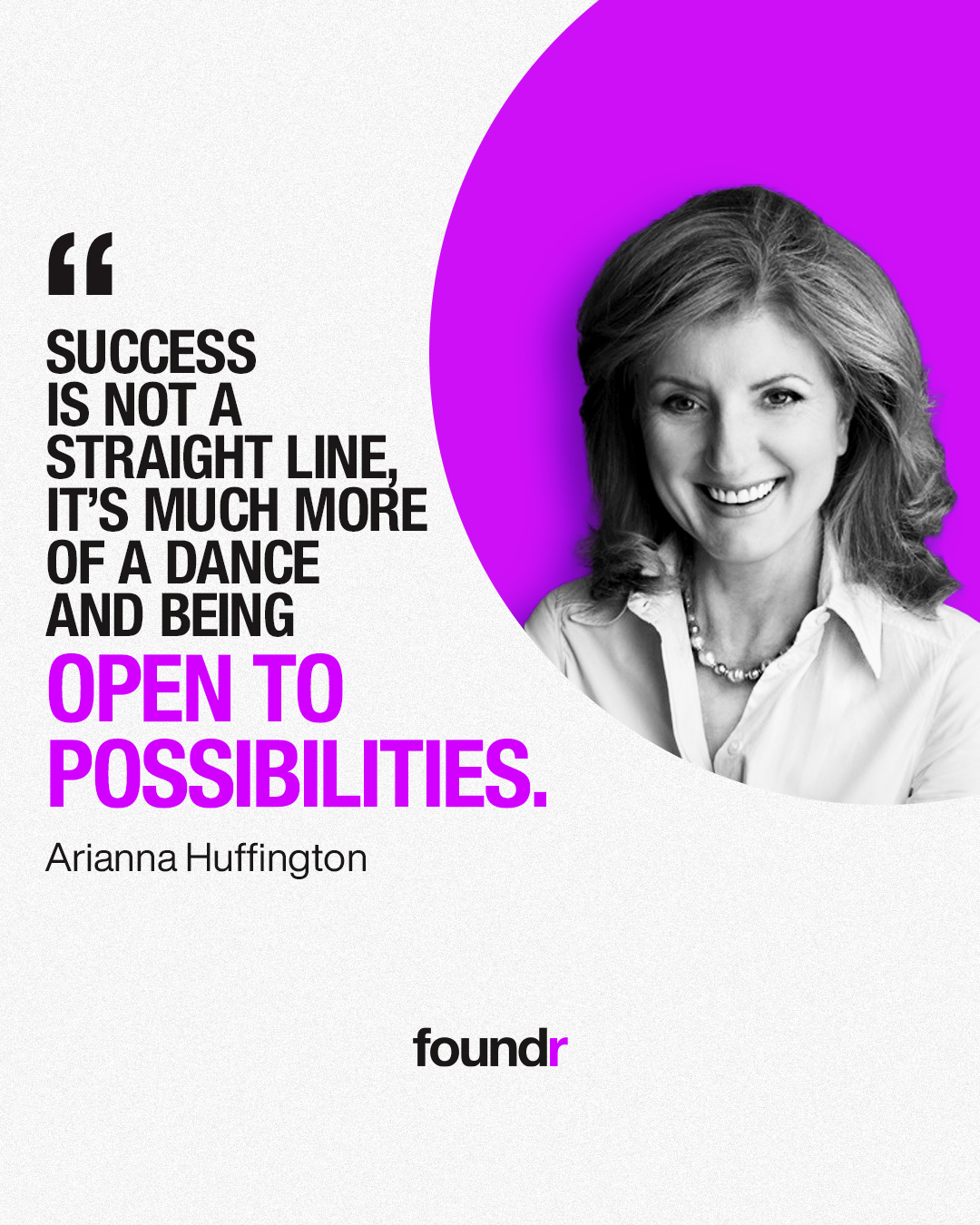
Jeff Bezos
One of the world’s richest men, Jeff Bezos, wasn’t born with a silver spoon in his mouth. Bezos didn’t build his empire on a legacy or luck, he built his empire on his pure tough mindset and refusal to let fear take the reigns.
At a summit in 2017, Jeff was interviewed by his own brother to discuss what he credit’s as the secret to his success, the “regret minimization framework”.
Interestingly, Bezos started developing this framework around the same time he started building Amazon. Back in 1994, Bezos was faced with the decision whether or not to quit his comfortable Wall Street job to chase the internet boom of the 90s.
He says that he decided to step back from his day-to-day activities at work for a few days to just imagine what it would be like to start his own company.
In those few days, Besoz realized that while the threat of failure was loud, his determination to chase his dreams was louder.
“The best way to think about it was to project my life forward to age 80,” and then take the path that “minimized my regrets.”
Rather than give in to fear, he acted on this “regret minimization” framework and took the plunge.
With a net worth of $182 billion, it seems the risk was worth the taking.
When his brother asked him what he would’ve done if Amazon failed and never managed to make it beyond the garage, Bezos simply said “if it failed, I would be very proud when I was 80 that I tried.”
Courage and overcoming fear are key components of mental toughness and grit, says Margaret Perliss for Forbes:
“The supremely gritty are not afraid to tank, but rather embrace it as part of a process…they understand that there are valuable lessons in defeat and that the vulnerability of perseverance is requisite for high achievement.”
Bezos’ framework is just that. It’s embracing the fear and accepting the risk. It gives us a little insight into how one of the world’s richest people approaches life. It takes courage to be able to block out the voice that says what if. If Besoz had listened to that voice if he’d stopped and worried about what could happen if he quit his job to hedge his bets, where would he be today?
Not with the title of “Richest Man In Modern History”, that’s for sure.
READ MORE: How To Stop Procrastinating And Smash Your Goals

Elon Musk
From building PayPal and SpaceX, to running “one of the world’s most disruptive automobile companies“, Elon Musk is a game-changer.
Musk is a key figure in entrepreneurialism and business for his relentlessness and his incredible memes. He has also suffered more failures and cost his company more money than we can even imagine.
While on a honeymoon with his wife, he was kicked out of PayPal. He has had three major failed Space X rocket launches that cost him billions, and multiple issues with the Tesla line to the point where the first model almost made zero sales. In 2008, both Tesla and SpaceX faced bankruptcy and has had multiple failed experimental drone ship landings.
When it comes to failing, and Musk is someone who has not only failed time and time again but failed with the consequences of billions of dollars lost, what does he say?
“Failure is an option here. If things are not failing, you are not innovating enough.”
Every single one of Musk’s new venture seems to be met with a chorus of naysayers, and every other day it seems that there are whispers of his empire crumbling. But Musk’s mindset is focussed on the future, and there’s no room for doubt or disbelief when you’re that tough.
If we look to history, former President of the United States Teddy Roosevelt dubbed the “Grand Sire of Grit”, once spoke about the importance of overcoming fear and managing vulnerability during his 1910 speech, The Man in the Arena:
“It is not the critic who counts; not the man who points out how the strong man stumbles, or where the doer of deeds could have done them better. The credit belongs to the man who is actually in the arena, whose face is marred by dust and sweat and blood; who strives valiantly; who errs, who comes short again and again, because there is no effort without error and shortcoming; but who does actually strive to do the deeds; who knows great enthusiasms, the great devotions; who spends himself in a worthy cause; who at the best knows, in the end, the triumph of high achievement, and who at the worst, if he fails, at least fails while daring greatly, so that his place shall never be with those cold and timid souls who neither know victory nor defeat.”
Musk has dealt some pretty heavy blows, imagine how he felt watching that first rocket implode? But rather than taking a seat next to his critics, his mental toughness shines through as he continues to push his businesses into new territories, and literally into the cosmos.
In a Time Profile in 2013, Sir Richard Branson himself wrote that “whatever skeptics have said can’t be done, Elon has gone out and made real.” We’re not sure if anyone specifically told Musk he couldn’t launch his car into orbit while playing David Bowie’s Space Oddity on repeat, but nevertheless, it’s just one more boundary he’s decided to test (and succeeded).

Sir James Dyson
You probably recognize his surname, and maybe you even have a few of his branded products lying around your home.
In school and college, Dyson found his love for interior design and furniture. This love was fuelled by a teacher who showed him the possibilities of combining drawings with the engineering of inventions and ignited the curiosity spark that we see so often in product pioneers.
Dyson began inventing.
His first invention, the “ballbarrow”, was just a regular wheelbarrow with a ball in place of the wheel, but the concept led to the invention of a cyclone-like system for bagless vacuums.
Dyson became obsessive. Creating prototype after prototype until he could make it work. It took a grand total of 5,127 different prototypes over 15 years for Dyson to get a vacuum prototype that he could pitch to British retailers. All of which rejected the idea.
When asked about this period in his life by Forbes, Dyson says “I was living off the bank when I had the idea back in 1979. I had no money to start with; In fact, I was in debt, and had been ever since I was a student.”
Nevertheless, Dyson’s belief in his product eventually pushed him to launch the product through catalogs in Japan. The product became an instant success and took off on a global scale. All of Dyson’s previous inventions fed into new ideas, creating hair styling tools, bladeless fans, hand dryers, even a Sea Truck that was picked up by the military.
In 2020 Bloomberg estimated his net worth to be reaching $27.3 billion.
So, what characteristic does Dyson have that helped him to push through decades of failure and thousands of failed prototypes?
Have a look at this excerpt from a 2006 interview:
“I wanted to give up almost every day. But one of the things I did when I was young was long-distance running, from a mile up to ten miles…I was quite good at it, not because I was physically good, but because I had more determination. I learned determination from it.”
“More particularly, I learned that the moment you want to slow down is the moment you should accelerate. In long-distance running, you go through a pain barrier. The same thing happens in research and development projects, or in starting any business. There’s a terrible moment when failure is staring you in the face. And actually, if you persevere a bit longer you’ll start to climb out of it.
It takes a helluva lot of mental toughness to run a marathon, and it’s that same toughness that keeps you chasing your dream.
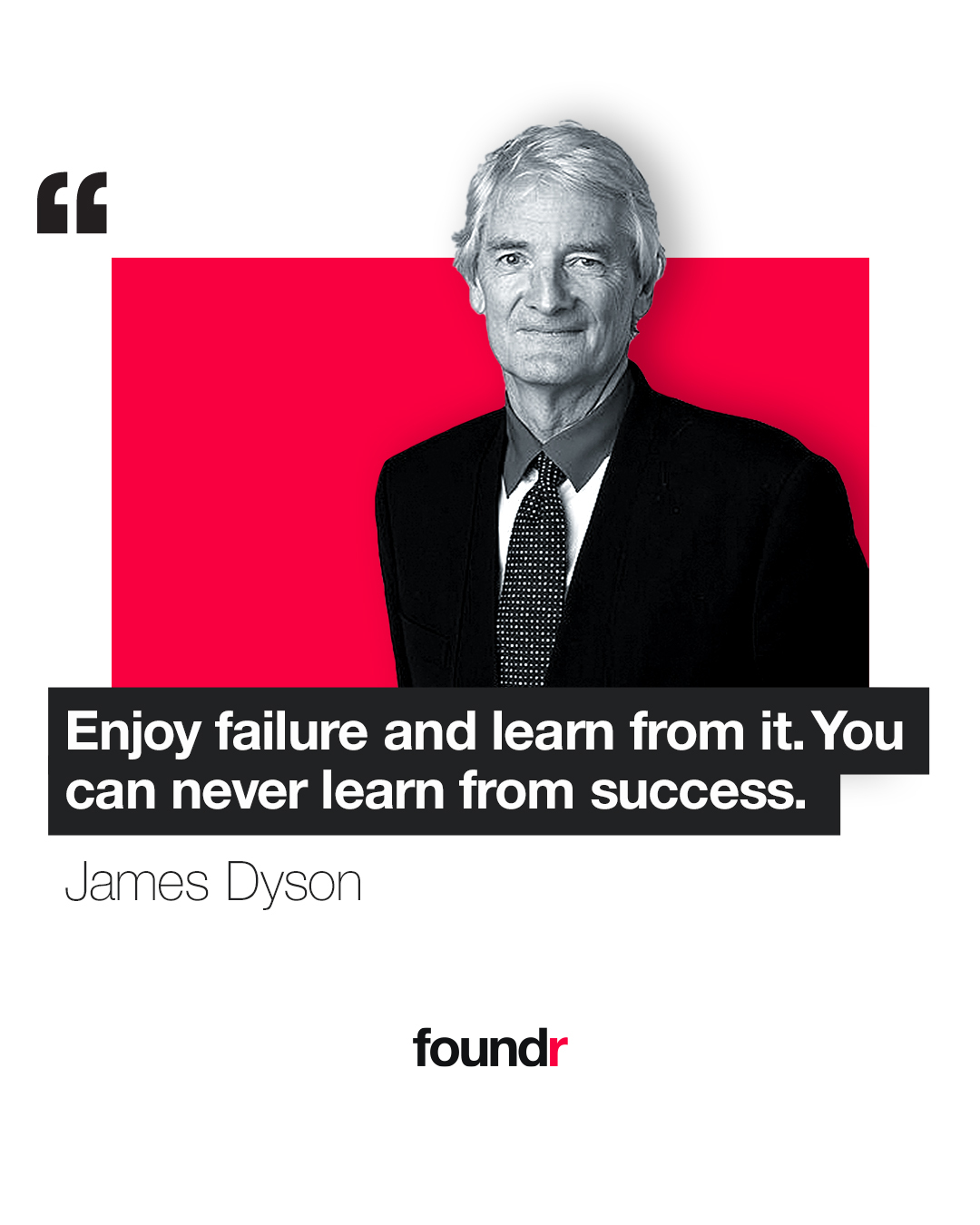
Sir Richard Branson
A cover boy of Foundr magazine, founder of the Virgin Group which now controls 400+ companies, and a net worth of $5 billion, and an actual knight, Sir Richard Branson is a lesson in dedication, perspiration, mental toughness, and a hardcore lesson in not taking yourself too seriously and staying the course.
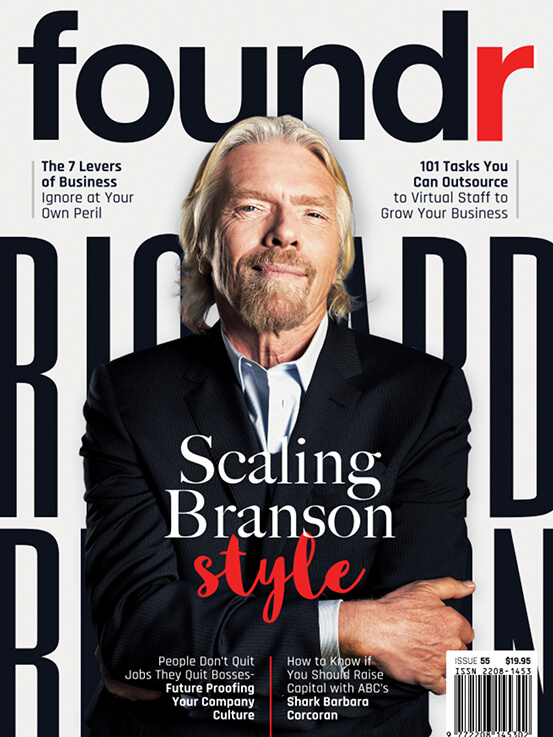 Branson’s ability to overcome personal challenges is best framed by his struggles with dyslexia.
Branson’s ability to overcome personal challenges is best framed by his struggles with dyslexia.
As a boy, Branson struggled so badly in school due to his dyslexia and even wrote a touching letter to his younger self in 2018, saying: “I know you’re struggling at school and I wanted to give you some advice on how to become the best you can be, even when it’s difficult and you feel like the world is against you. You should never see being different as a flaw or think that something is wrong with you. Being different is your biggest asset and will help you succeed.”
Arguably the person who had the greatest effect on Branson’s bold approach to life was his mother, Eve Branson.
When Branson was little, he and his mother were traveling home from a shopping trip when Eve decided to pull the car over and leave Branson on the side of the road. She gave him basic instructions on how to get home and drove away.
Branson was just 5 years old.
“[It was] about three miles through the countryside [to get home]” he says. “She was punishing me for causing mischief in the back seat, but she was also teaching me a larger lesson about overcoming my disabling shyness and learning to ask others for directions.”
While we don’t advocate abandoning anyone in the countryside, let alone a small child, the lesson Eve taught a young Branson a lesson of the importance of developing mental toughness.
When Branson was asked for his number one career advice for others, INC.com summarised his answer well:
“‘Never look back in regret…move on to the next thing.’ The best advice from one of the most successful entrepreneurs of all time has nothing to do with securing funding, or trending on social media, or hiring the perfect team…it’s about mindset…”
Branson dropped out of school in 1967, at the age of 16, to start his first business, the now infamous: Student Magazine which almost sent him broke and forced him to pivot the company to a much more successful route: music. His mail-order discount record business was launched to support his magazine and eventually blossomed into the billion-dollar recording empire called Virgin Records.
From failure to failure, Branson has stayed true to what his mother taught him and stayed the path. Failed ventures included Virgin Cola (an attempt to take on Pepsi and Coca-Cola), Virgin Cars, Virgin Brides, Virgin Digital, and even the almost-catastrophic first flight of Virgin Atlantic Air which came close to crashing on its first flight.
“I can’t count the number of stressful situations I’ve found myself in since I launched my first business over 50 years ago,” he says. “Stress and business go hand-in-hand, and that’s not a bad thing; high-pressure situations can certainly be motivating”.
So, what’s Branson’s big advice to others who need a good dose of toughening up? “Screw It, Just Do It”.
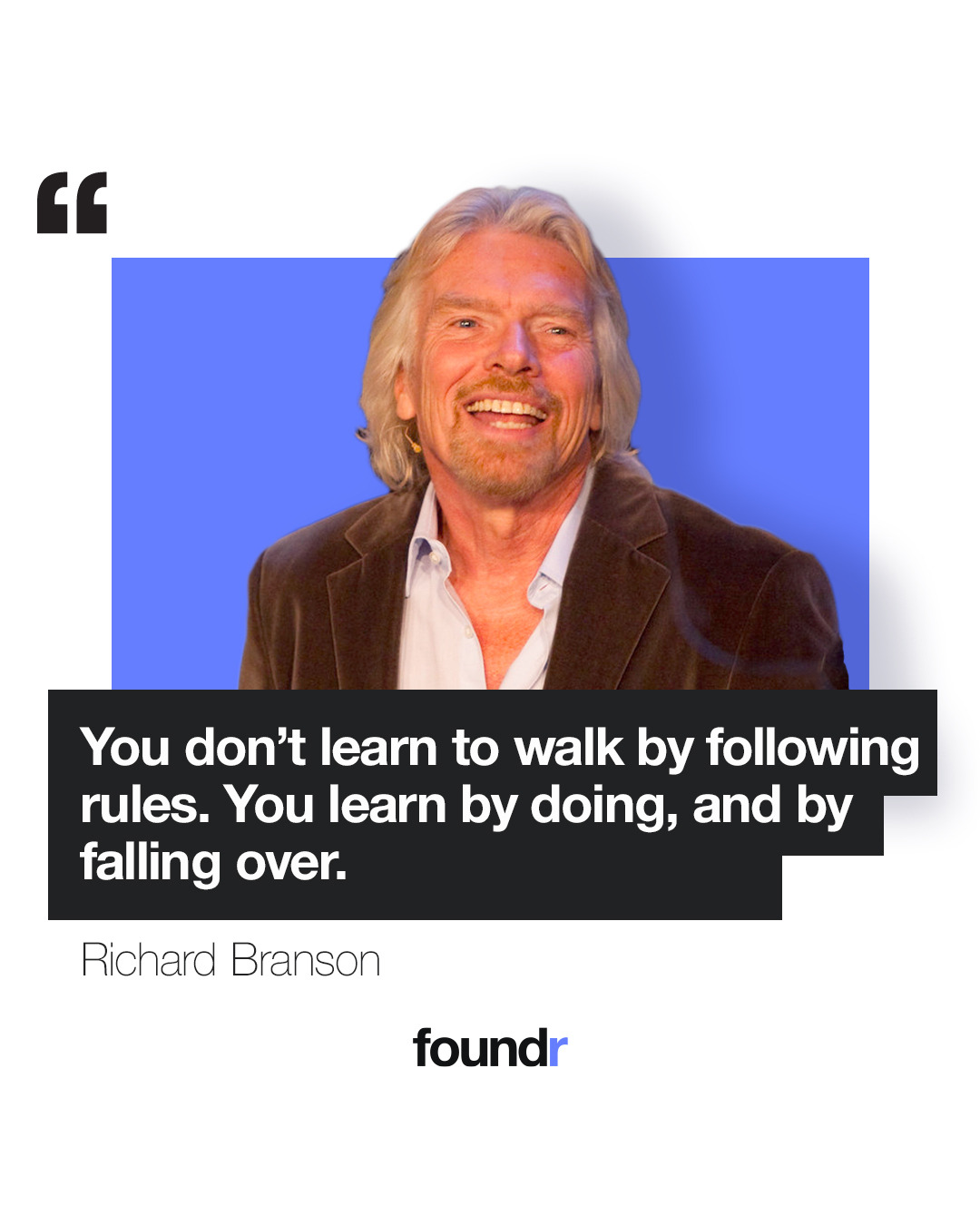
Howard Schultz
Most of us would probably panic if we realized we had somehow lost $60 in 3 hours. Now imagine costing your company $6 million in 3 hours during a global financial crisis.
If that makes you feel a little uneasy, you’re not alone. But that’s exactly what Howard Schultz did in 2008 to help reinvigorate a struggling Starbucks.
In 2008, mid-GFC, Starbucks’ was facing a dilemma. Howard Schultz had left the company 8 years ago, faced with the global recession, plummeting stock prices, and a general perfect storm of chaos for a coffee chain, Schultz was brought back to the company to do what he does best.
“We were drifting a bit towards mediocrity and kind of losing our voice. I needed to come back,” he said.
Jumping into the captain’s seat of his beloved company again, on February 26, 2008, Schultz made the impossible and slightly eccentric call to close down its 7100 stores across the US to train its baristas and store managers on how to prepare a perfect espresso.
For 3 hours across the country, all Starbucks stores hung a sign that said: “We’re taking time to perfect our espresso. Great espresso requires practice. That’s why we’re dedicating ourselves to honing our craft.”
The company was already in a precarious position hemorrhaging money in an economy that was tightening its belt, and losing $6 million in 3 hours was a gutsy decision that naysayers would have scoffed at. Luckily, Schultz didn’t listen to them, and the $6m was well-spent.
Schultz’s dedication to brand values and personal beliefs is astonishing. Time and time throughout his journey, his mental toughness has allowed him to make difficult and impossible decisions based on his own beliefs.
Losing his company $6m has been described as an act of courage, and a “signal to the customers, partners, competitors, and media that the company would not settle for anything but the best, and change starts right at home. How many companies do you know of would take such a radical step for employee training?”
As of 2019, the company website reports a total number of 30,000 stores across 80 markets., and there’s a running joke about a Starbucks on every corner of the globe. The company has had its ups and downs, scaling issues, and marker-oversaturation, but Schultz’s commitment to retaining the company’s core is the real story. It even became the byline for his aptly named memoir Onward: How Starbucks Fought for Its Life without Losing Its Soul.
Mental toughness is being sure of what you believe and never allowing anything to tilt your compass. It can be relatively easy to fix a company from scratch, but it is much more difficult is to retain its core and build around it. That takes guts.
And, Schultz’s advice to budding entrepreneurs?
“Grow with discipline. Balance intuition with rigor. Innovate around the core. Don’t embrace the status quo. Find new ways to see. Never expect a silver bullet. Get your hands dirty. Listen with empathy and overcommunicate with transparency. Tell your story, refuse to let others define you. Use authentic experiences to inspire. Stick to your values, they are your foundation. Hold people accountable but give them the tools to succeed. Make the tough choices; it’s how you execute that counts. Be decisive in times of crisis. Be nimble. Find the truth in trials and lessons in mistakes. Be responsible for what you see, hear, and do. Believe.”
Might as well be a to-do list for improving your mental toughness.
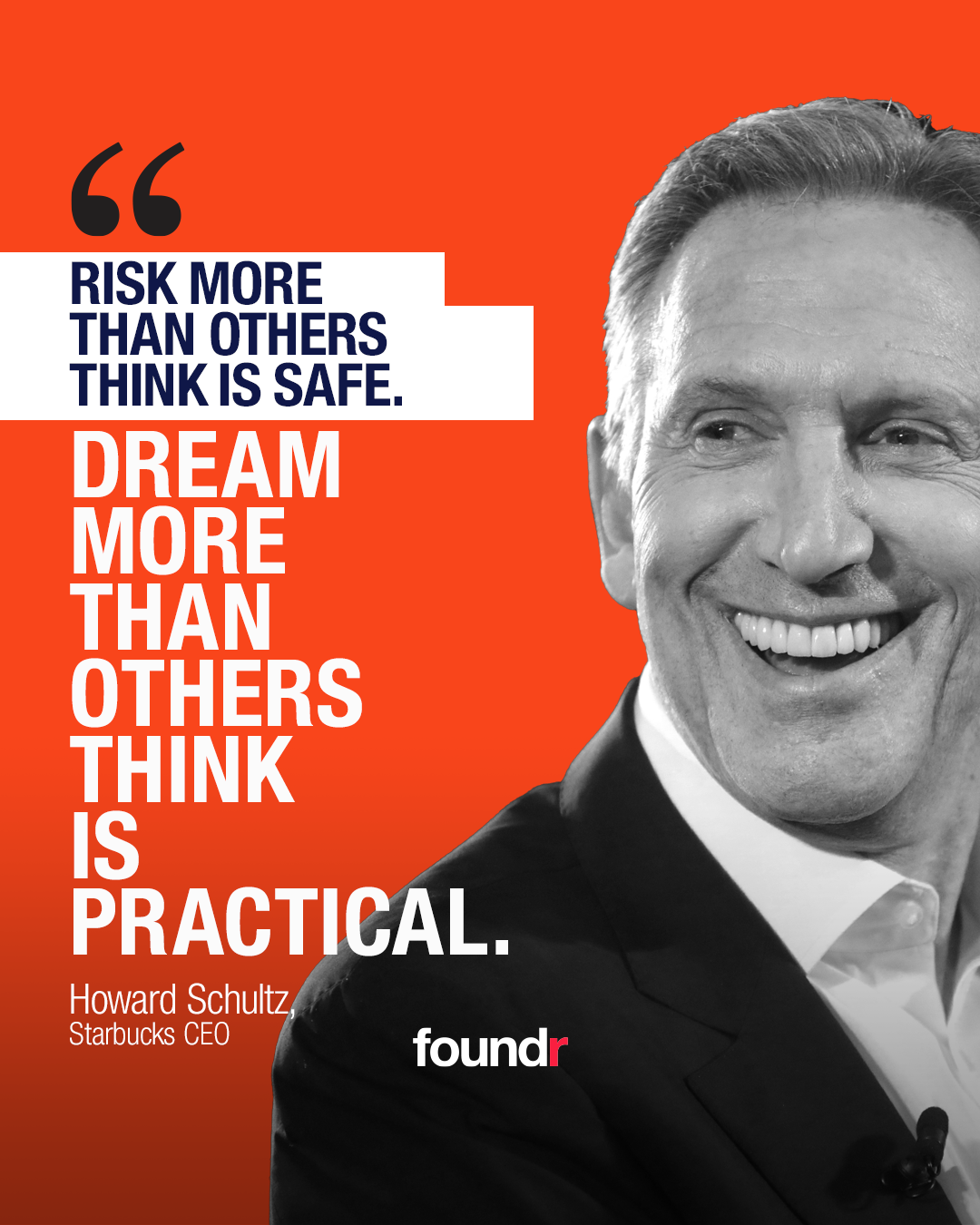
Joe De Sena
When the Olympic wrestling team needed to take their mental game up a notch, the coach sent them to Joe De Sena. When several billionaires found their kids on drugs and heading down the wrong path, they sent them to Joe De Sena. When the military needs to whip their cadets into shape, they send them to Joe De Sena.
Joe De Sena, Spartan CEO and author of the New York Times best-seller of Spartan-Up: A Take-No-Prisoners Guide to Overcoming Obstacles and Achieving Peak Performance in Life, might be the toughest person on the planet.
He has managed to rip 7 million regular people off the couch and pushed them past their limits to achieve “impossible” goals across 45 countries. He has completed over 40 ultra-endurance events including a 365-mile, 6-day race in Canada in the dead of winter, plus the Lake Placid Iron Man, The Vermont 100 (100 miles), and the world’s toughest foot race, the Bad Water Ultra Marathon (135 miles in extreme heat and cold). All of this in the same week.
When a resume reads like the script of a Mission impossible film, you best bet that they have a bit of grit. But how does this unstoppable mindset translate to business?
The answer: pretty darn well. In fact, Joe De Sena is killing it.
In an exclusive interview with Foundr, and arguably one of our wildest ones to date (click here to listen!), Joe De Sena reveals the mountains of failure in business he’s overcome over the years.
Back when the toughest man on earth wasn’t hosting hardcore obstacle races, he was working a 9-5 with the dream of one day living on a farm and organizing tough events.
Working a job he wasn’t passionate about, De Sena spent”I’m a big believer in ‘fire, ready, aim’. So, I fired the gun and put on my first event…. and my first event was a disaster. But I just kept going. And I kept going and going, and I created the job I have now, from scratch.”
That disaster that De Sena mentions during his first event was losing one of the competitors during the race, and borrowing Sir Richard Branson’s helicopter to find them a week later marooned on a desert island. Imagine not letting that hiccup slow you down?
But most impressive is that De Sena and the Spartan brand did not turn a profit for the first 15 years. It’s crazy to think that for 15 of the races he lost money on them—$8 million to be exact.
“Anyone in their right mind wouldn’t have continued. But I don’t like to quit because I’m a crazy person. I got so buried financially that I didn’t have a choice but to make it work. And that’s the difference between success and failure,” De Sena says.
The ability to see challenges in the right perspective is a key component of mental toughness and something that the Spartan warrior has a good grip on.
The Spartan brand struggled in 2020, as did most companies globally, but it hasn’t affected De Sena’s mindset in any way.
Covid and the cancellation of multiple events and lost sponsorship forced De Sena and his company to furlough a lot of their employees, but De Sena puts it in perspective by comparing this struggle to soldiers in the Vietnam war.
“They would crawl for three days on the side of their body so as not to create a trail that the enemy would see to come after them. And I think [2020] is not that bad. It’s bad, but it’s not that bad.”
Not many people can take physical beatings and financial hardship like De Sena and brush it off, but when it comes to being in business, De Sena says you gotta be prepared to.
“Everything that can go wrong will go wrong. And it’s really going to be up to you and your reaction to those things. You’re not going to change the environment. Bullets are going to be flying stuff’s going to be going wrong, your competitor’s going to take over some of your business, you’re going to steal your best clients, your factory’s going to burn down. You’re going to run out of money, you’re going to bounce checks.
“Everything that can go wrong will go wrong. And if you don’t react to that the right way, you’re out of business.”
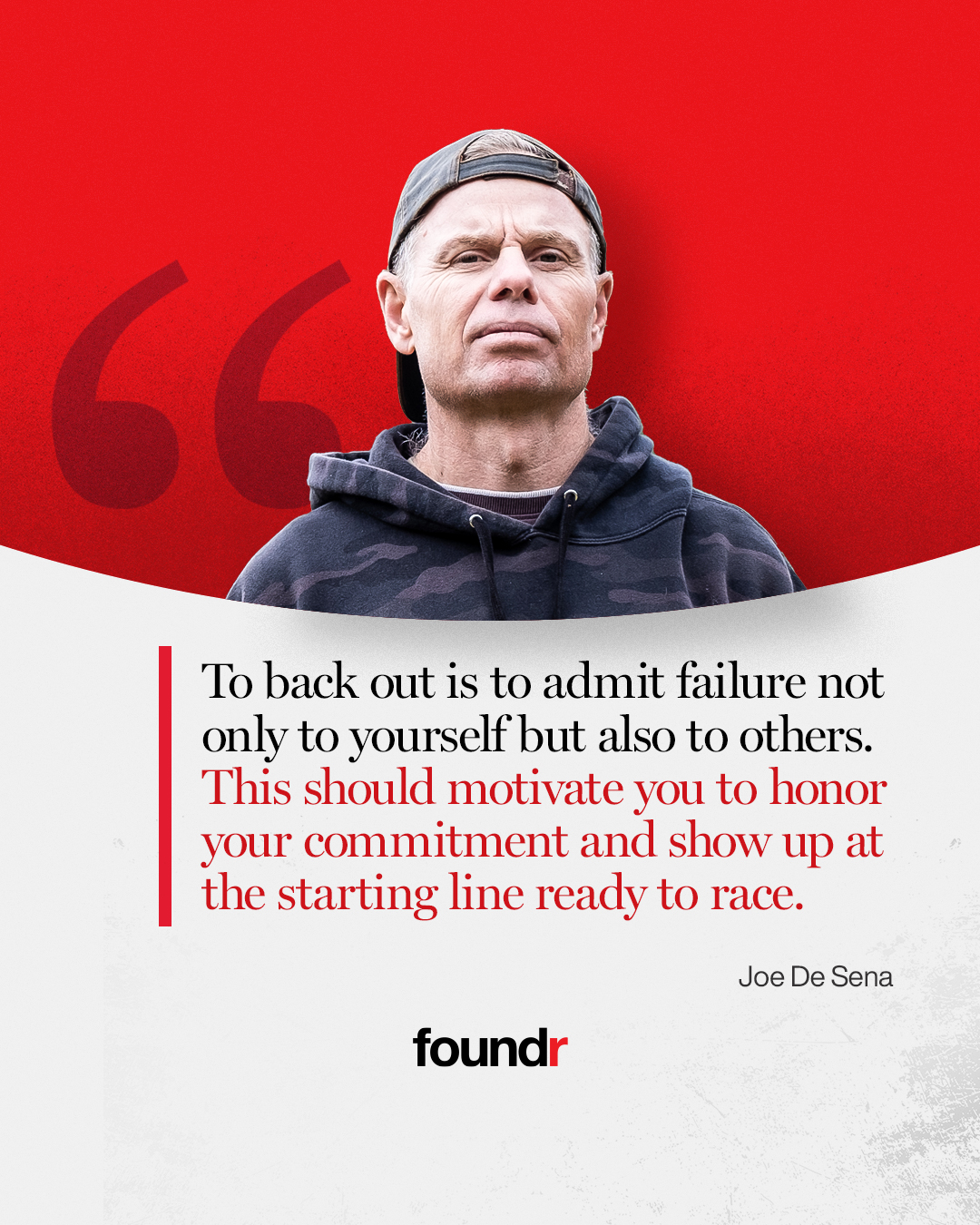
READ MORE: How To Win The Day The Spartan Way
In Summary
It’s a strange thing when you realize the big secret to success.
We spend so much of our time assuming that our hero entrepreneurs are smarter than us, are more cunning, have some secret sauce to winning in business.
We think that the only way to reach the top is by being born with that special talent, that unique flair that sets you apart. You need to have the charisma of Oprah or the mad-scientist energy of Elon to get to where you wanna go.
You tell yourself that if you ain’t got it, you ain’t going to get anywhere.
But the proof is in the pudding when it comes to success: the way to get to where you wanna go is your mindset. You need that bulletproof mindset that allows you to keep pushing the boundaries, and ignoring the naysayers.
In other words, you gotta have that mental toughness if you want to be unstoppable.
If you want to become the best of the best, the toughest entrepreneur out there, and rise above the fear of failure, then Foundr’s new course with none other than the man himself Joe De Sena is for you:
EXCLUSIVE FREE TRAINING: This New Free Masterclass Will Make You Unstoppable
Who do you think is the toughest entrepreneur out there? Let us know in the comments below.
The post How Oprah, Jeff Bezos, and Spartan’s Joe De Sena Turned Failure into Success appeared first on Foundr.
via https://AiUpNow.com February 3, 2021 at 12:11AM by Perrie Kapernaros, Khareem Sudlow,
